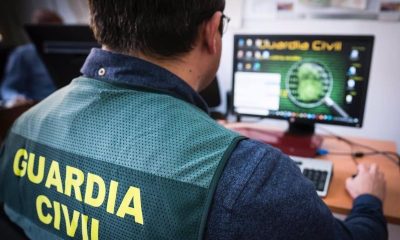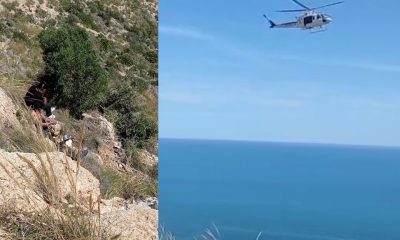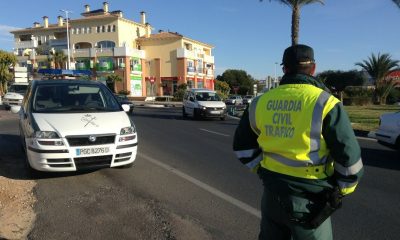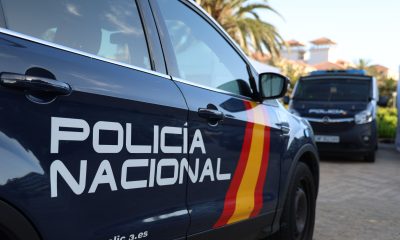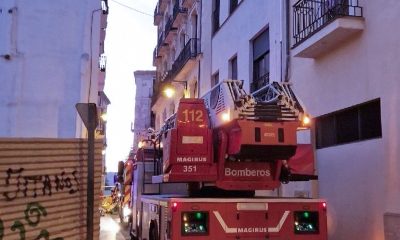Costa Blanca
Orihuela woman dies because ambulance took too long to arrive
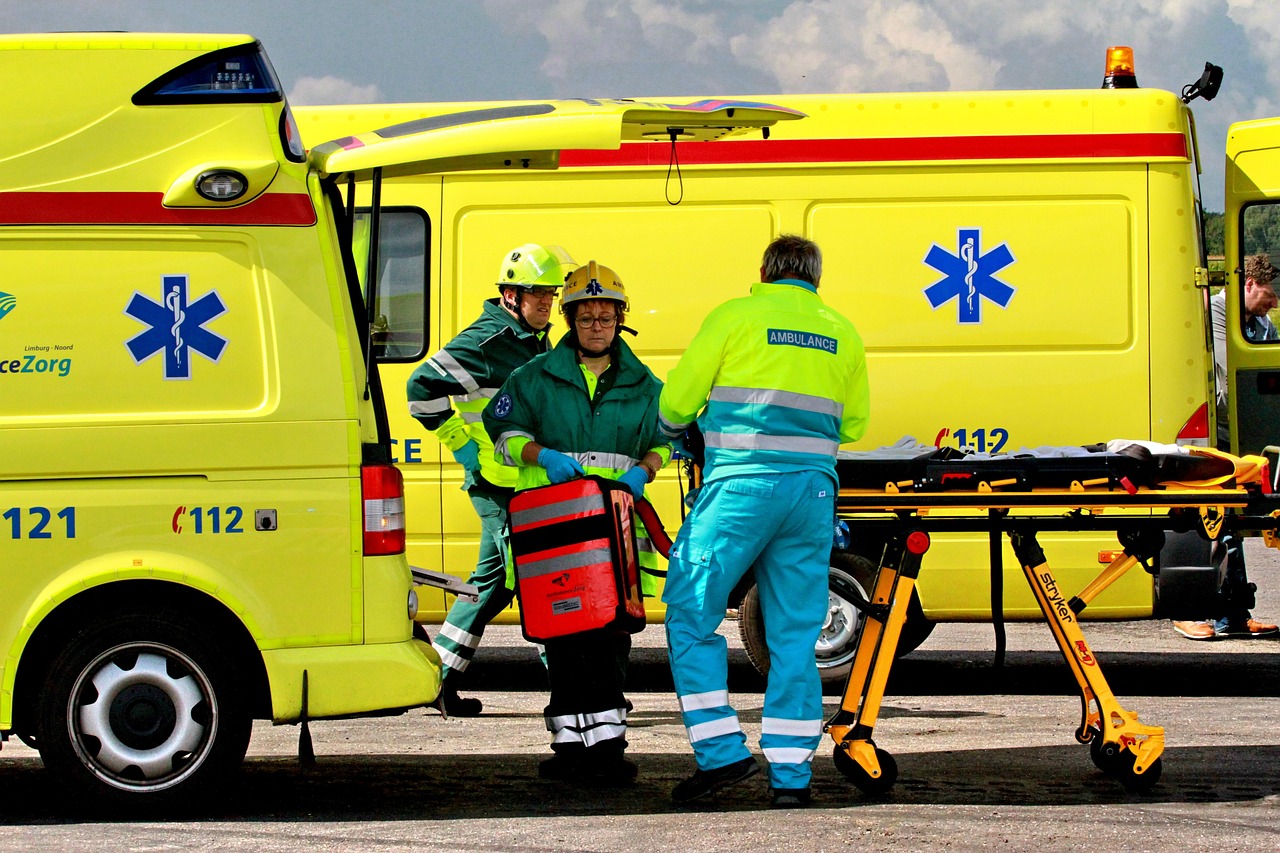
On Monday, 24th March, a 24-year-old lady passed away at her residence in Rincón de Bonanza’s Orihuela sector. According to her family, the National Police arrived earlier than the SAMU (National Emergency Medical Services), which took forty minutes to arrive.
Her uncle, Juan Ramón, says about the stressful and, most importantly, excruciating periods they went through while making a valiant attempt to escape the suffering and remember the terrible events that occurred only two days later. NAV was prescribed a pain reliever after visiting the emergency room of Vega Baja Hospital that morning for sciatica and everything going smoothly. The young lady had never experienced any health issues before. At approximately 1 p.m., his niece passed out and fell to the ground. She was talking and conscious. She informed him that her grandmother and partner were there. She lives next door, so it just took him a few seconds to get there.
After that, she experienced cardiac arrest. While the ambulance awaited its arrival, her uncle and partner both administered cardiopulmonary resuscitation. “We both knew how; I learnt in the military, and he had worked in an ambulance,” Juan Ramón adds. He claims that they attempted to resuscitate her for almost thirty minutes before National Police officers showed up there and removed them due to their weariness. “Our whole bodies hurt,” he remembers saying.
As Juan Ramón watched his niece “was losing consciousness, she was fading little by little, her pulse was losing its hold until she was left with her eyes open and glassy, in the void, with her face white and her lips purple,” he laments that the health services had asked her on the phone up to three times if she had her health card on hand.
He maintains that the ambulance “should have taken 10 minutes at most,” given that it is located on the road that links Vega Baja Hospital and the urban area. But for some reason, it took more than forty.
He states in a weak voice that this is the reason she wants to make the world aware of “what’s happening, not just for my niece, for whom nothing can be done,” but “because until it affects you, you’re not aware, but it can happen to anyone.”
She called 112 at 1:07 p.m., according to her story and the call record on her mobile phone, and gave them all the information they asked for—with the exception of her health card, which she was missing at the moment.
Three minutes after that, his niece passes out. When he gets a call at 1:12 p.m. asking for the SIP once more, Juan Ramón responds that his niece has gone into cardiac arrest and reiterates that he doesn’t have that information. He also insists that they are performing cardiopulmonary resuscitation on her and asks that they move quickly because she is in cardiac arrest.
He gets another call at 1:20 p.m. confirming that they are unable to locate his niece’s details. Once more, Juan Ramón introduces them to his niece. It seems that their last name was incorrect. They affirm that they have located her a few seconds later. She is in cardiac arrest, Juan Ramón confirms. They take him to a doctor, who enquires about his niece’s health. The doctor is surprised that they are able to do cardiopulmonary resuscitation (CPR) when he responds that they are.
A number of National Police patrols came about 1:25 p.m. Because they had been warned that the victim was conscious, the officers did not have a defibrillator, therefore they relieved Juan Ramón and NAV’s partner to continue CPR. Because they were within a short distance from the police station when they received the warning, one of the policemen objected.
An ambulance came at approximately 1:45 p.m. and took over for at least another 45 minutes, utilising all available resources, after another 15 minutes of taking turns giving CPR. However, the death was confirmed around 2:00 p.m. without any success.
The first contact, which was received at 1:03 p.m., described a woman who had fallen, was experiencing dizziness and breathing difficulties, according to the Emergency Information and Coordination Centre (CICU). At 1:05 p.m., an ambulance from the Basic Life Service was sent out.
The call was categorised as priority 1 at 1:09 p.m. when the caller dialled 112 once more, stating that they were performing basic cardiopulmonary resuscitation. While they were familiar with the approach, the CICU offered to help guide the resuscitation manoeuvres while they mobilised a SAMU unit.
According to CICU sources, the Medical Service for the Uninfected Mumps (SAMU) was already providing assistance at 1:24 p.m. Advanced cardiac resuscitation and other recovery measures were administered by the medical team, but no reaction was observed.
One ambulance
The notice was also given to the local health centre’s doctor. At the same moment as the SAMU (National Health Service), he and a nurse came in their vehicle. “The Orihuela Health Department is fully booked every day because there is only one SAMU (National Health Service), one less than the number of staff it has been assigned for the past three years,” says the medical expert, who has spent 23 years working in the local health centres.
In 2022, the Valencian Community’s urgent and non-urgent land medical transport service specifications established four medicalised units in the region, two in each of the two health areas (Orihuela and Torrevieja). However, the specifications failed to consider that the one on the Orihuela coast, which is located in Torrevieja due to its proximity, actually has three.
This “error” means that in reality, a department with a protected population of 180,000 people—including Orihuela (without the Coast), Albatera, Algorfa, Almoradí, Benejúzar, Benferri, Bigastro, Callosa de Segura, Catral, Cox, Daya Nueva, Daya Vieja, Dolores, Granja de Rocamora, Jacarilla, Rafal, Redován, and San Isidro—has only one medicalised ambulance.
In July of last year, the Vega Baja Hospital’s UGT union branch notified management of the situation and asked that “this service, which we so desperately need, be restored as soon as possible.” As of yet, there has been no settlement.
Discover more from Costa Blanca Daily
Subscribe to get the latest posts sent to your email.
Costa Blanca
Fugitive sought by the Slovak authorities arrested in Torrevieja
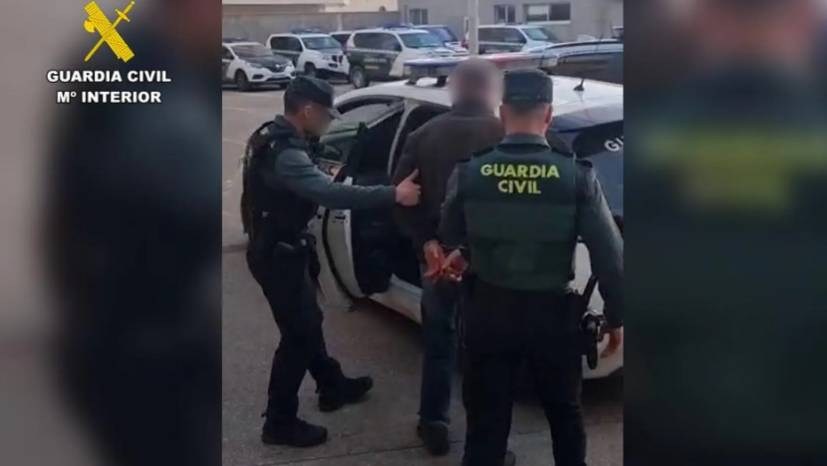
A 41-year-old Slovak male who was the subject of a European arrest warrant issued by his country of origin has been apprehended by Guardia Civil officers. He was a fugitive from Slovak justice and was apprehended during a police operation.
The detention occurred on March 29th as part of a preventative operation that was implemented in one of the municipality’s busiest leisure areas. The objective was to regulate the entry of individuals and vehicles into the port area, which is a frequent gathering spot on weekends.
Officers identified a vehicle whose operator endeavoured to circumvent police control during the operation. Officers intercepted the vehicle, which was transporting two individuals, in response to this suspicious conduct.
Officers encountered that one of the passengers was being pursued by Slovak authorities upon identifying the occupants. The individual, who had been residing in Spain since mid-2024, was promptly apprehended.
The detainee was subsequently brought before Central Investigative Court No. 2 of the National Court, which ordered his remand in detention pending his extradition to Slovakia.
Discover more from Costa Blanca Daily
Subscribe to get the latest posts sent to your email.
Costa Blanca
Six arrested for the use of AI to defraud over 19 million euros
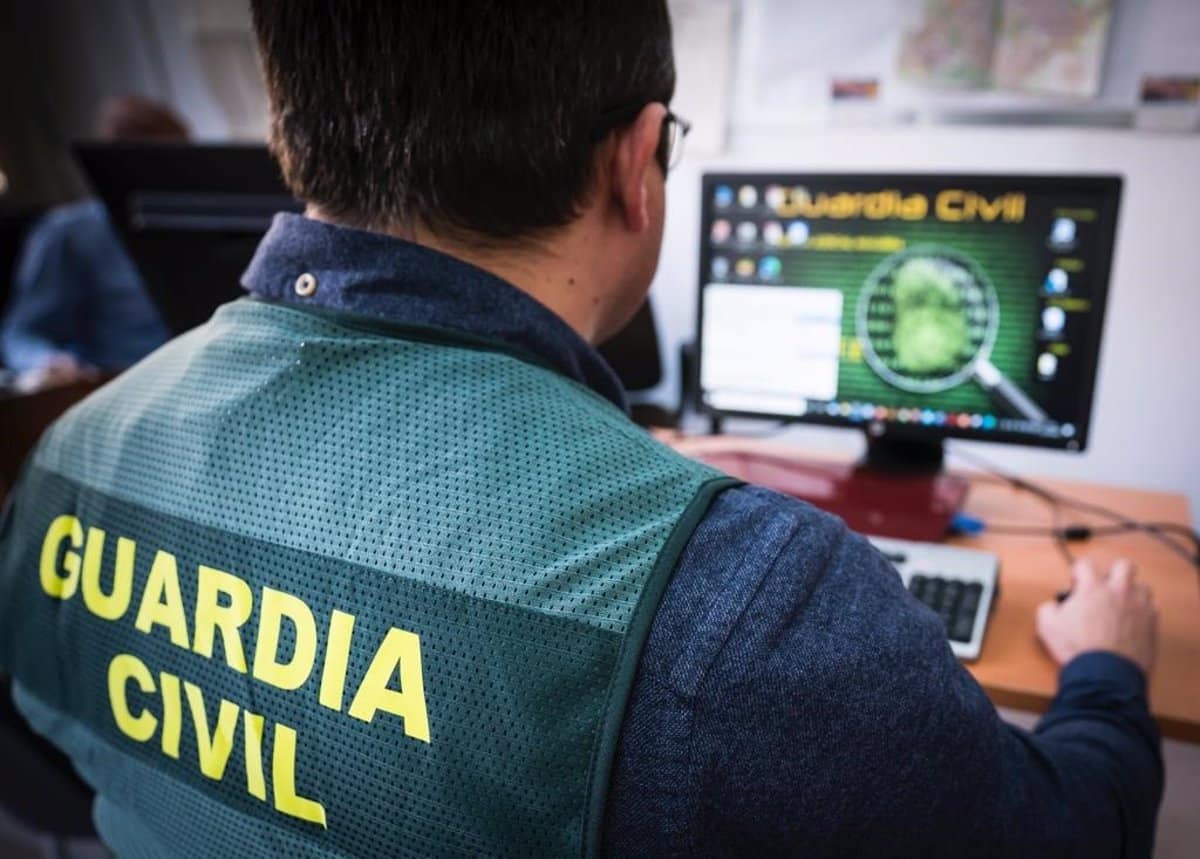
As part of Operation Coinblack-Wendimine, the Guardia Civil and the National Police have apprehended six individuals between the ages of 34 and 57 who are purportedly affiliated with a criminal organisation that is accused of defrauding over €19 million from 208 victims through fraudulent cryptocurrency investments.
The investigation was conducted in a variety of locations throughout Alicante and Granada. Agents conducted a search of the residence of the organisation’s primary commander in Spain, who was preparing to leave for Dubai. They confiscated a fake gun, extensive documentation, numerous mobile phones, computers, and hard drives.
Two years ago, a man in Granada reported that he had been defrauded of €624,000, which sparked the operation. Officers discovered the network that connected the criminal organisation to cryptocurrency investments that were ultimately discovered to be fraudulent. Concurrently, the National Police in Alicante were conducting an investigation into the same network, which encompassed the offence of document forgery.
The organisation advertised on a variety of websites that were associated with cryptocurrency investments and featured prominent figures. Additionally, the victims were not chosen at random; rather, algorithms selected those whose profiles corresponded with the cybercriminals’ enquiries.
After selecting their victims, they placed advertising campaigns on the websites or social media platforms they used, promising them cryptocurrency investments with high returns and no danger of financial loss. These investments, of course, turned out to be scams. After selecting their victims, they established advertising campaigns on the websites or social media platforms they utilised, promising them cryptocurrency investments with high returns and no danger of financial loss. These investments, of course, proved to be fraudulent.
False financial advisors
The cybercriminals gained their trust by masquerading as financial advisors, sometimes even claiming to be in a romantic relationship, and by sending them false information through fake websites with fictitious returns. They urged them to convert all of the money in their accounts to cryptocurrency. Upon deciding to extricate their investment funds, the victims encountered numerous obstacles and impediments, which led them to the realisation that they had been defrauded.
The cybercriminals contacted the victims again after a period of time, assuming the identity of investment managers and informing them that the money had been locked. They also stated that it was possible to retrieve the funds, but in order to do so, they would need to make another deposit, typically in the amount of a substantial sum. The victims, who had reported the incidents, received a message from fictitious Europol agents or lawyers from the United Kingdom, informing them that they had successfully retrieved their money and that the only remaining task was to pay the taxes associated with the country in which it was blocked. Once more, they consented to pay the purported taxes, confident that they would be able to recoup their investment.
The victims, who had reported the incident to the Guardia Civil or the National Police, received a message from fictitious Europol agents or fictitious UK lawyers informing them that they had successfully recovered their money and that the only remaining task was to pay the taxes associated with the country in which it was blocked. Once more, they consented to pay the purported taxes, confident that they would be able to recoup their investment.
Arrests were conducted in Alicante, Torrevieja, Santa Pola, and Villajoyosa. Fraud, money laundering, and falsification of documents within a criminal organisation are all charges against each individual. The ringleader was remanded in detention after being brought before the Alicante Investigative Court. The inquiry continues to be ongoing.
The Technological Crimes Investigation Team (EDITE) of the Organic Judicial Police Unit of the Granada Civil Guard and the Unit against Immigration Networks and Document Forgery (UCRIF-3) of the Alicante National Police conducted the operation, which was overseen by the Granada Prosecutor for Technological Crimes.
Discover more from Costa Blanca Daily
Subscribe to get the latest posts sent to your email.
Costa Blanca
Helicopter rescue operation near Santa Pola lighthouse
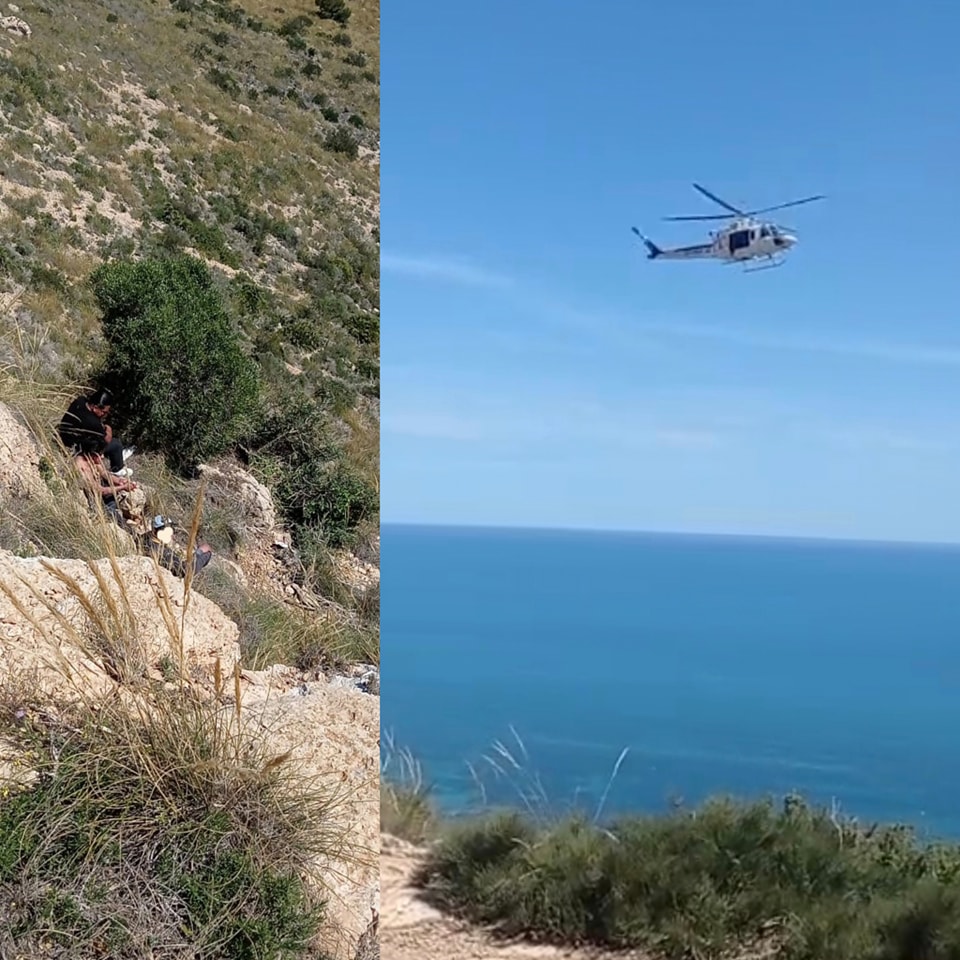
A substantial emergency services response was initiated in the vicinity of the Santa Pola lighthouse viewing platform as a consequence of an alleged irresponsible incident. A man, who appeared to be under the influence of alcohol, became too close to the cliff edge to urinate, resulting in his fall and the entrapment of himself and two companions who attempted to assist him. Fortunately, the injured man was able to stop his fall from the cliff just a few metres away, thereby preventing any additional harm that could have been fatal.
The incident needed the mobilisation of three local police patrols, Guardia Civil officers, an ambulance, and the fire department, which arrived via helicopter and ground personnel. The injured individual did not require air evacuation. The injured man was treated on-site by the firefighter rescue team, who were aided by the doctor who was travelling in the helicopter. They then securely immobilised him and transported him to the top of the cliff, where he was placed on a stretcher and transferred to the ambulance.
The victim, who, according to witnesses, exhibited signs of intoxication, was transported to the Elche General University Hospital for additional medical attention. However, he was not in a life-threatening condition. The two friends who had accompanied him to the bottom of the cliff also needed help to return to safety, as they were ensnared on the overhang.
Discover more from Costa Blanca Daily
Subscribe to get the latest posts sent to your email.
-

 Costa Blanca4 days ago
Costa Blanca4 days agoBefore Easter, the new road through La Hoya should open
-
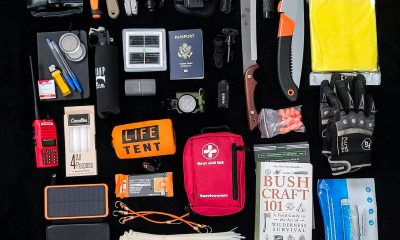
 News2 weeks ago
News2 weeks agoWhat is included in the emergency pack that Europe announced?
-

 Costa Blanca2 weeks ago
Costa Blanca2 weeks agoVega Baja students taking part in the Duke of Edinburgh awards
-
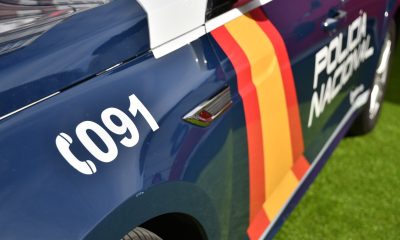
 News2 weeks ago
News2 weeks agoMan arrested by National Police for scamming over 200,000 euros
-
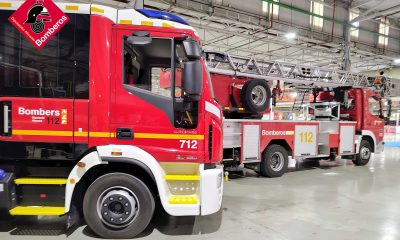
 Costa Blanca2 weeks ago
Costa Blanca2 weeks agoUrgent meeting requested by Alicante firefighters to settle labour dispute
-

 Costa Blanca2 weeks ago
Costa Blanca2 weeks agoPortugal has arrested the wanted man who killed John George near Rojales
-
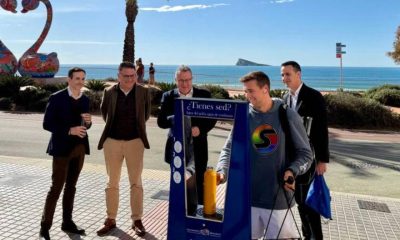
 Costa Blanca2 weeks ago
Costa Blanca2 weeks agoCold water to fight the heat on Benidorm’s streets
-

 Costa Blanca2 weeks ago
Costa Blanca2 weeks agoVets protest about the animal drug control regulations



